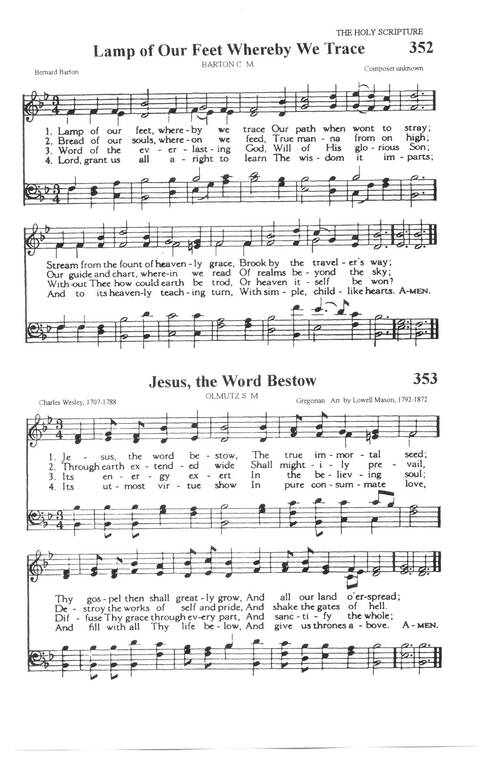1. Lamp of our feet whereby we trace
Our path when wont to stray;
Stream from the fount of heavenly grace,
Brook by the traveler's way:
2. Bread of our souls, whereon we feed,
True manna from on high;
Our guide and chart, wherein we read
Of realms beyond the sky;
3. Word of the ever-lasting God,
Will of His glorious Son;
Without Thee how could earth be trod,
Or heaven itself be won?
4. Lord, grant us all aright to learn
The wisdom it imparts;
And to its heavenly teaching turn,
With simple, childlike hearts.
Scripture; Exodus 13:17-22;
Nehemiah 9:5-25;
Psalm 119:130; John 6:25-35
The hymn "Lamp of Our Feet, Whereby We Trace" was written in 1824 by Bernard Barton (1784–1849), an English Quaker poet.
Background
Bernard Barton was known as the "Quaker Poet" and wrote extensively on spiritual and moral themes. His works often reflected the simplicity and devotion characteristic of Quaker beliefs. "Lamp of Our Feet" is a metrical reflection on the role of Scripture, inspired by Psalm 119:105:
"Thy word is a lamp unto my feet, and a light unto my path."
Hymn's Theme
The hymn beautifully captures the guidance and illumination provided by God's Word, likening it to a lamp that leads believers through life's journey. Its text emphasizes the importance of Scripture in providing spiritual direction, strength, and comfort.
Though not as widely sung today, this hymn holds historical significance as a poetic expression of reliance on the Bible during a time when hymns were increasingly becoming tools for personal and communal devotion.
Scripture; 



No comments:
Post a Comment